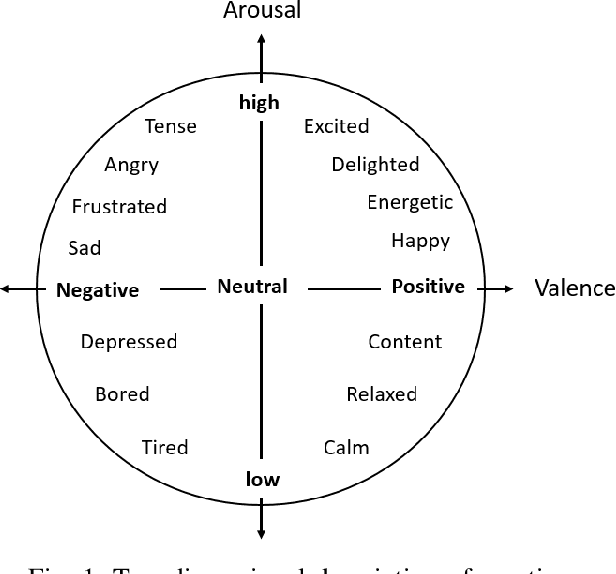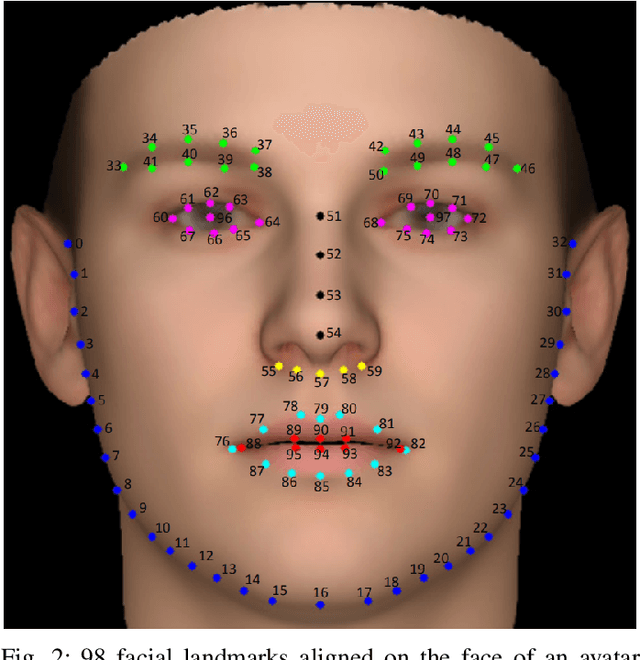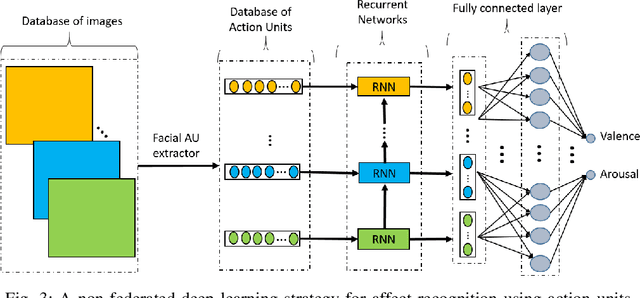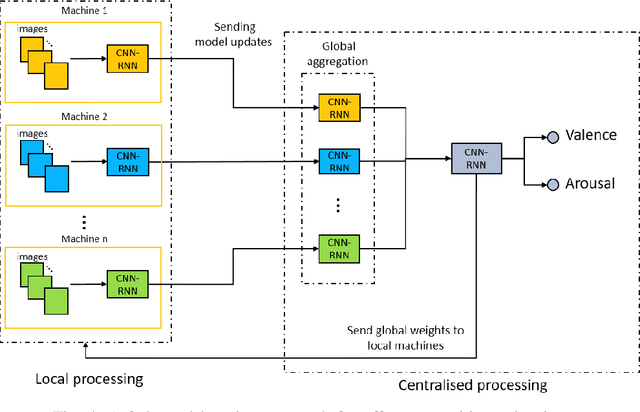Towards Privacy-Preserving Affect Recognition: A Two-Level Deep Learning Architecture
Paper and Code
Nov 14, 2021



Automatically understanding and recognising human affective states using images and computer vision can improve human-computer and human-robot interaction. However, privacy has become an issue of great concern, as the identities of people used to train affective models can be exposed in the process. For instance, malicious individuals could exploit images from users and assume their identities. In addition, affect recognition using images can lead to discriminatory and algorithmic bias, as certain information such as race, gender, and age could be assumed based on facial features. Possible solutions to protect the privacy of users and avoid misuse of their identities are to: (1) extract anonymised facial features, namely action units (AU) from a database of images, discard the images and use AUs for processing and training, and (2) federated learning (FL) i.e. process raw images in users' local machines (local processing) and send the locally trained models to the main processing machine for aggregation (central processing). In this paper, we propose a two-level deep learning architecture for affect recognition that uses AUs in level 1 and FL in level 2 to protect users' identities. The architecture consists of recurrent neural networks to capture the temporal relationships amongst the features and predict valence and arousal affective states. In our experiments, we evaluate the performance of our privacy-preserving architecture using different variations of recurrent neural networks on RECOLA, a comprehensive multimodal affective database. Our results show state-of-the-art performance of $0.426$ for valence and $0.401$ for arousal using the Concordance Correlation Coefficient evaluation metric, demonstrating the feasibility of developing models for affect recognition that are both accurate and ensure privacy.
 Add to Chrome
Add to Chrome Add to Firefox
Add to Firefox Add to Edge
Add to Edge